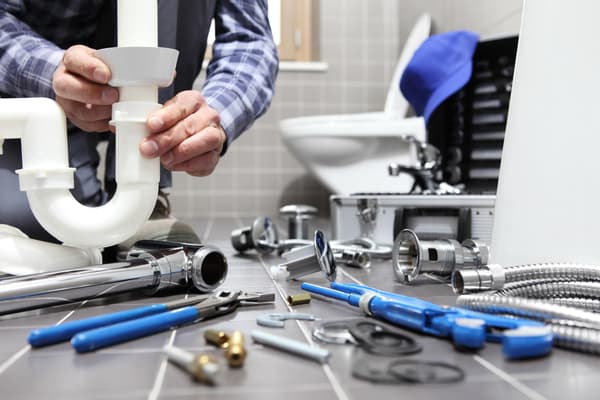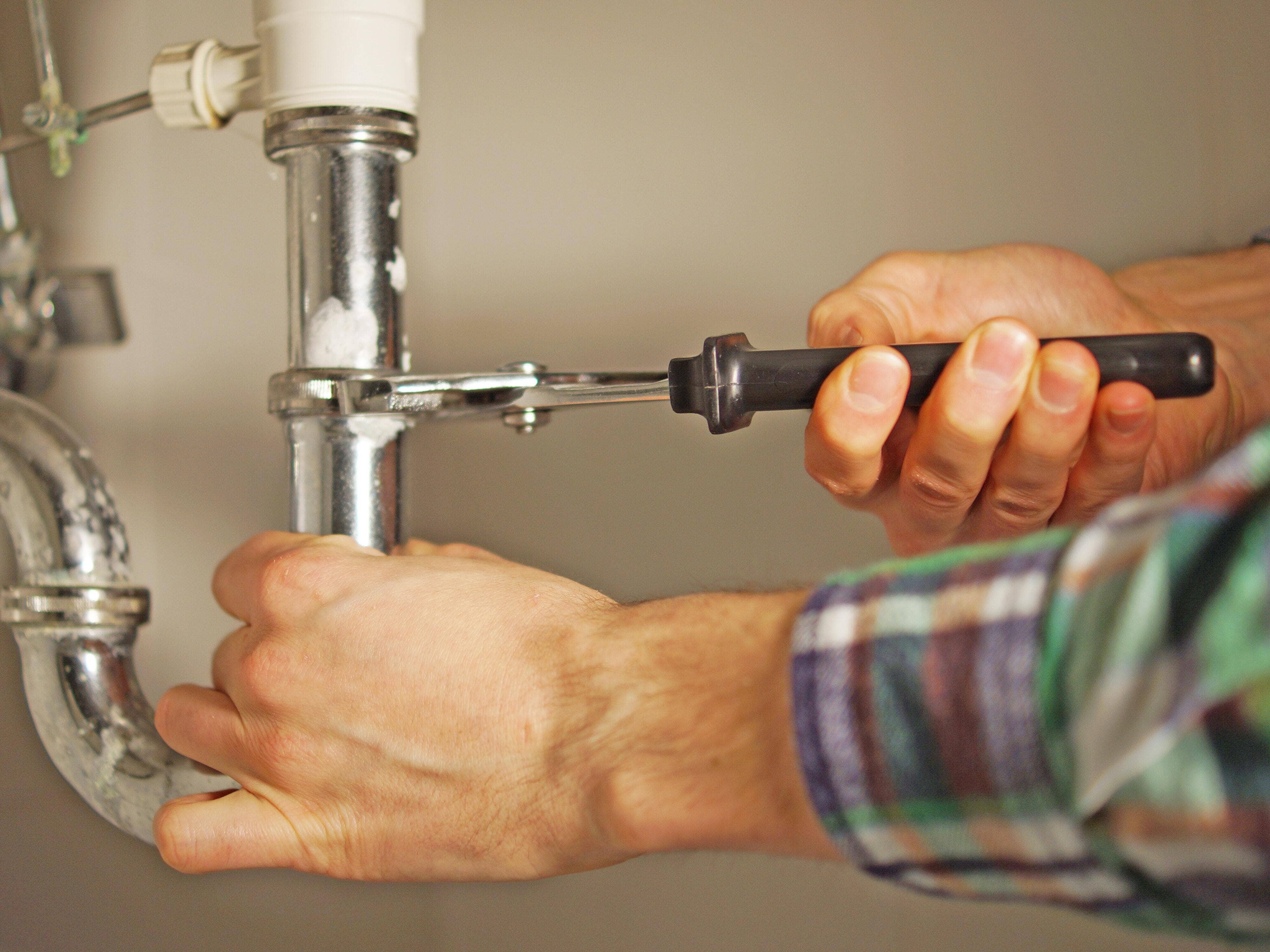Do you find yourself trying to find critical info around Leak Detection and Repair Without Destroying Your Home?

The trick to durable appliances, unsurprisingly, is proper maintenance. There's no hard and fast policy that can assure your plumbing devices a lengthy wear, but you can prevent unnecessary damages and also fixings by avoiding bad plumbing practices.
You ought to stop doing these 6 things else you'll keep calling your plumber over for minor faults.
Flushing whatever
Yes, your commode drain leads to the sewers, but that doesn't mean you should dump just anything down the drain. Many 'flushable' materials are in fact fantastic blockage starters, for example dental floss. Asides maintaining noticeable non-flushable products like cables as well as plastics out of your bathroom, you ought to also avoid flushing cotton buds, menstruation items, wipes, daipers as well as condoms down the toilet drain.
Putting oil in the sink
We know correctly dealing with grease after a hearty meal is a pain. Yet merely pouring it down the drain can do long-term injury to your pipelines. "The fat as well as grease can obstruct your drainpipe badly sufficient to force you to call a plumber," clarifies Dawson. "Plumbing functions best when it's well taken care of-- not abused with grease."
Making use of excessive drain cleaner
Making use of a drainpipe cleaner more than one or two times a month is an indication that something serious is taking place within your pipes. Now, as opposed to dealing with the main concern, you opt for a quick fix; a fizzy drainpipe cleaner. Rightfully, a drain cleaner will take care of the obstruction, however at what cost?
The chemicals in a drainpipe cleaner can accelerate the rust of your pipelines. Add that to whatever underlying problem is triggering the clog and you might have to a severe problem on your hands.
If you experience way too many blockages, call your emergency plumber as opposed to utilizing a drainpipe cleaner.
Not rinsing recipes before filling them into the dishwasher
it's called a dishwashing machine, but throwing in recipes, pots, as well as frying pans covered in big food fragments can actually trigger some serious damage to the device, causing long-lasting troubles down the line. "Property owners might have to get their dish washer repaired more often if they don't rinse their recipes prior to loading, or at the very least eliminate larger food items," explains Audrey Monell, proprietor of Forrest Anderson Plumbing and AC in Glendale, Arizona. "Food that gets stuck on dishes creates the dish washer to function harder, which can wear down parts much faster, resulting in problems."
DIYing whatever
With plumbing, a stitch in time truly does conserve 9. You can prevent a fullblown plumbing emergency by calling your plumber at the right time.
You may have found out a couple of plumbing hacks from your father, yet you ought to understand where to draw the line as well as call an expert. For instance, you might be able to repair a clog yourself, however you should not attempt to transform a pipeline. You might inequality pipelines or overtighten a bolt, triggering more injury and damage than you assumed. Calling a plumber is a secure and also cost effective decision.
Not altering your dishwasher pipes
One easy means to make certain that you utilize your dishwashing machine for many years is to replace the pipe at the very least once in five years. This also gets cleaning equipment tubes.
With time, food fragments, soap and also grease can form clogs within your pipes. Changing them on time will certainly protect against any kind of presure accumulate that can harm the interior functions of your dishwasher or washing device.
A reinforced steel braided hose does a great work of lengthening your maker's use time.
No winter season precautions
Severe weather conditions misbehave for your pipelines, particularly if they're made of steel. You should shield your subjected pipes, and your water container, even if you have a water heater. You ought to additionally shut off your garden tube valve and any other exterior water networks. These channels are outlets for cold; you pipes can begin to ice up from outside if you don't.
How Hard Water Damages Your Plumbing and Appliances
Hard water is no stranger to most households across America. This silent invader affects 85% of homes in the United States every day, wreaking havoc on pipes, plumbing fixtures, and water-using appliances.
Should you become a victim of hard water, you must understand exactly what it is and how it affects your plumbing and appliances. This will help you determine the correct measures to put in place to fix or prevent any problems that may arise.
First off, what exactly is “hard” water?
In short, “hard water” is used to describe water that contains relatively high amounts of dissolved minerals, primarily calcium and magnesium, and a host of trace metals. When rainwater falls from the sky (usually in a pure form), it absorbs the hardness minerals from rocks and soil, which changes it from soft to hard water.
What about my plumbing and appliances?
Mineral deposits from hard water can cause buildup on tubs, shower, sinks, faucets. But that’s only a small scratch of the surface. Those minerals can gradually build up inside pipes, fixtures, water heaters, washing machines, and dishwashers. Once they accumulate in those areas, they can clog pipes and create major problems throughout your plumbing system, from reduced water flow to increased pressure on pipes and fixtures.
This limescale buildup might affect some appliances, causing them to operate less efficiently and wear down faster. And the result? Higher energy bills, more (costly) plumbing replacements and repairs, and damaged appliances.
Keep in mind that certain types of plumbing are more susceptible to clogging than others. Copper, PVC, and PEX pipes are more resistant to hard water buildup and corrosion, but they can still get clogged or completely blocked by scale deposits.
How do I know if my water is hard?
White limescale buildup on plumbing fixtures (or any of the other signs mentioned above) is usually a good sign that your water is hard. If you suspect that you have hard water, you can simply shake up a small amount of dish soap and water in a closed container. If the mixture doesn’t create a lot of suds, you probably have hard water.
The most precise method, however, is to test your water with a DIY test kit (sold online or at local home centers or hardware stores) or send a water sample from your tap to a local lab to be tested. Be sure that you understand the nature of the test, the water condition being measured, and the significance of the test results.
Another way to obtain an estimate of water hardness is to check your annual water quality report to see if your water provider has reported any instance(s) of water hardness in your water supply.
https://www.springwellwater.com/how-hard-water-damages-your-plumbing-and-appliances/

I stumbled upon that review on Don’t Let an Earthquake Damage Your Plumbing while doing a lookup on the internet. Enjoyed reading our posting? Please share it. Help someone else discover it. Thank you so much for going through it.
Click For More Information
Comments on “Care For The Plumbing Appliances: 6 Critical Mistakes To Avoid”